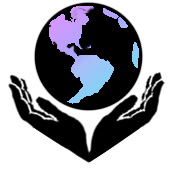The Feminist Diversifying, Unifying, Globalizing Process
created by: Jasica Chiang & Sophie Wang

"Feminism in one country is not sustainable -- we need feminism on a global scale."
- Women in Development Europe, 1995
The Feminist Diversifying, Unifying, Globalizing Process created by: Jasica Chiang & Sophie Wang
|
Examples of Current and Past Projects Undertaken as Part of the Feminist Diversifying/Unifying/Globalizing Process |
|
Beijing Platform The principal themes were the advancement and empowerment of women in relation to women’s human rights, women and poverty, women and decision-making, the girl-child, violence against women and other areas of concern. The resulting documents of the Conference are global and universal Beijing Declaration and Platform for Action. Deeply entrenched attitudes and practices perpetuate inequality and discrimination against women, in public and private life, in all parts of the world. Accordingly, implementation requires changes in values, attitudes, practices and priorities at all levels. The Conference signaled a clear commitment to international norms and standards of equality between men and women; that measures to protect and promote the human rights of women and girl-children as an integral part of universal human rights must underlie all action; and that institutions at all levels must be reoriented to expedite implementation. Governments and the UN agreed to promote the "gender mainstreaming" in policies and programs. Complete Text of the Beijing Declaration and Platform for Action |
United Nations
Fourteen countries, including Angola, Bolivia, Egypt, India, Indonesia, Madagascar, the Netherlands, Nicaragua, the Philippines, Qatar, Slovenia, South Africa, Bosnia and Herzegovina, Italy were elected to serve on the United Nations Human Rights Council after two rounds of balloting among Member States at UN Headquarters in New York on May 17, 2007. The United Nations Human Rights Council is a department of the United Nations Secretariat. Its main objectives are to promote and protect the enjoyment and full realization, by all people, of all rights established in the Charter of the United Nations and in international human rights laws and treaties. The mandate includes preventing human rights violations, securing respect for all human rights, promoting international cooperation to protect human rights, coordinating related activities throughout the United Nations, and strengthening and streamlining the United Nations system in the field of human rights. In addition to its mandated responsibilities, the Office leads efforts to integrate a human rights approach within all work carried out by United Nations agencies. OHCHR's priorities are set out in its Strategic Management Plan 2006-2007 and follow the Vienna Declaration and Programme of Action of the 1993 World Conference on Human Rights, and the Charter of the United Nations. The Deputy High Commissioner for Human Rights as of 5/2007 is Kyung-wha Kang. |
WIEGO The Social Protection Program of WIEGO aims to examine and bring forth the specific risks of the working poor in the informal economy. The program is involved in international networks, alliances, and campaigns; it also aims to identify and document innovative approaches to providing social protection to informal workers, especially poorer women workers, including extending the coverage of existing schemes or developing new schemes. The Global Labour Forum is an emerging group of (mostly) economists in (mostly) Asian countries, who are developing new conceptual thinking on labor markets and employment. WIEGO was asked to organize a plenary panel on “Social Protection for Informal Workers” at the Second Global Labour Forum, New Delhi, in December 2005. The panel was chaired by SEWA’s Renana Jhabvala, and presentations were given by SEWA’s Mirai Chatterjee, Homenet Thailand’s Boonsom Wansomboon and their consultant researcher Donna Doane, and WIEGO Social Protection Programme Director Francie Lund. The panel was well received, and WIEGO was then invited to be a collaborating partner in organizing the third meeting of the Forum, to be held in Sweden in 2007, and to be hosted by the Swedish National Institute for Working Life, which was one of the founder members of the GLF initiative. WIEGO has been invited to participate in the first planning meeting. The theme of the next Forum will be “Mobility of Capital and Labor.” WIEGO is interested in using the occasion “to advance its work on a) the global migration of women in the health care and other sectors; b) the overlap between informality and migrant labor; and c) the relative immobility of labor (compared to capital) in global value chains.” |
WSF The World Social Forum originated in Porto Alegre in the year 2001; its origins lie in protest movements worldwide, rising up to fight back against economic policies and trade agreements with which they disagreed. It has successfully brought anti-capitalist protestors from acting solely as a countermovement to the Washington Consensus, into a forum where their own ideas for post-capitalist modes of production can be shared and debated. The WSF has placed social justice, international solidarity, gender equality, peace and defense of the environment on the agenda of the world’s peoples. Over the years, the WSF has transformed into “a global counter-force challenging the assumptions and dictates of imperialism and its associated neo-liberal policies that have over the decades, imposed colonialism and neo-colonialism; devastated Southern economies; bolstered the disastrous and repressive reigns of assorted tin pot dictatorships; marginalized women; disenfranchised youth; intensified the destruction of the environment; unleashed bloody, inhuman and needless military conflicts in nation after nation, region after region and deepened the exploitation of poor peoples around the world.” The 7th World Social Forum meeting titled Another World Is Possible was held on the 20th to 25th of January this year. It brought the activists, social movements, networks, coalitions and other progressive forces from all over the world to converge in Nairobi, Kenya for five days of cultural resistance and celebration; panels, workshops, symposia, processions, film nights and more. The World Social Forum has collectively expanded the democratic spaces of those seeking concrete, sustainable and progressive alternatives to imperialist globalization. |
References: Projects Banner created from photographs from www.un.org, www.decisionmaker.co.nz, www.wiego.org,
karachi.metblogs.com/archives/images/2006/ |
|